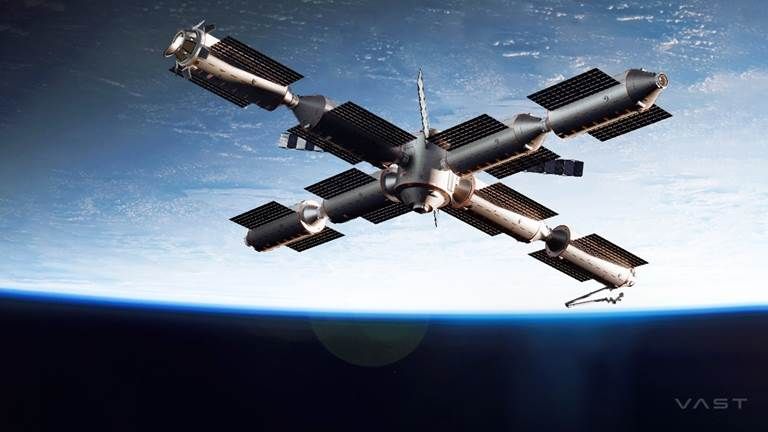The retirement of the International Space Station (ISS) is planned for 2030. With just six years left on the clock, private companies are vying to see their space stations reach low-Earth orbit and become the world’s first-ever commercial orbital laboratory.
At the 75th International Astronautical Congress (IAC) held in Milan, Italy, on Monday (Oct. 14), U.S.-based space habitation technology company Vast threw its hat in the ring. The company’s CEO, Max Haot, unveiled Haven-2 as a proposed successor to the ISS. In an accompanying press statement, Vast describes the private space station Haven-2 as the “next step in the company’s vision to pioneer a path to long-term living and thriving in space.”
“Our focus this decade is to win the NASA Commercial LEO Destination (CLD) contract and build the successor to the International Space Station,“ Haot said in a statement. “To achieve this, we will first demonstrate our capability by building and operating the world’s first commercial space station, Haven-1, which is set to launch in 2025.”
Vast has developed Haven-2, a NASA-certified version of Haven-1, to be modular, enabling it to be gradually constructed in low-Earth orbit, just like its predecessor, the ISS.
If Haven-2 wins the lucrative NASA CLD contract in 2026, the company projects that the first Haven-2 module could reach low-earth orbit and become fully operational by 2028.
Related: US space science could fall behind China if private successors to ISS are delayed, Congress warns
Haven-2: Starting off small
Following the deployment of this 16-foot-long initial unit, Vast said it would build three more modules and launch them within a two-year period between 2030 and 2032. Each subsequent module will not only expand the commercial space station’s volume but also improve Haven-2’s life support technologies and payload capabilities.
Haven-2 may be a commercial endeavor, but it is being founded with the potential for future international collaboration in mind. Collaboration has been something that has been vital in the success of the ISS.
“Haven-2 is being designed with compatibility in mind, ensuring that international partners can integrate seamlessly into this next-generation platform,” Vast advisor and 23-year veteran NASA astronaut Andrew Feustel said in the statement. “This vision of global cooperation in space will create opportunities for scientific and technological…
Click Here to Read the Full Original Article at Space…

